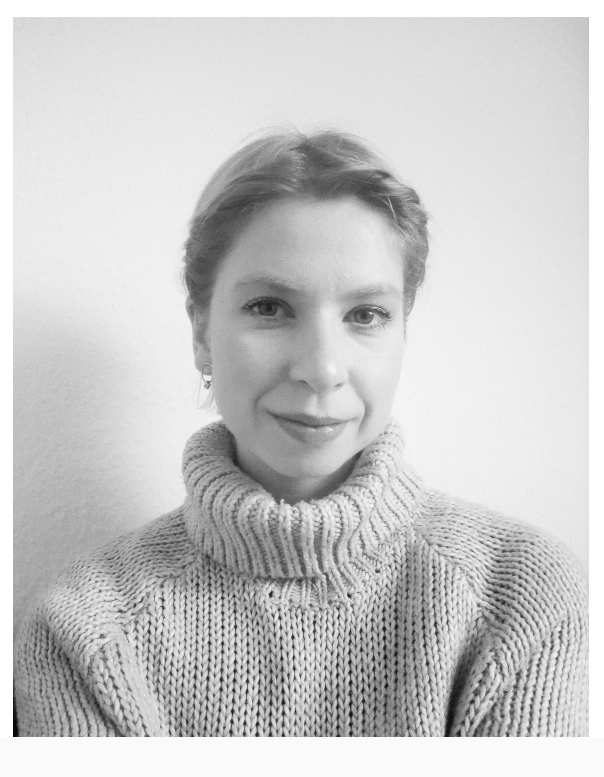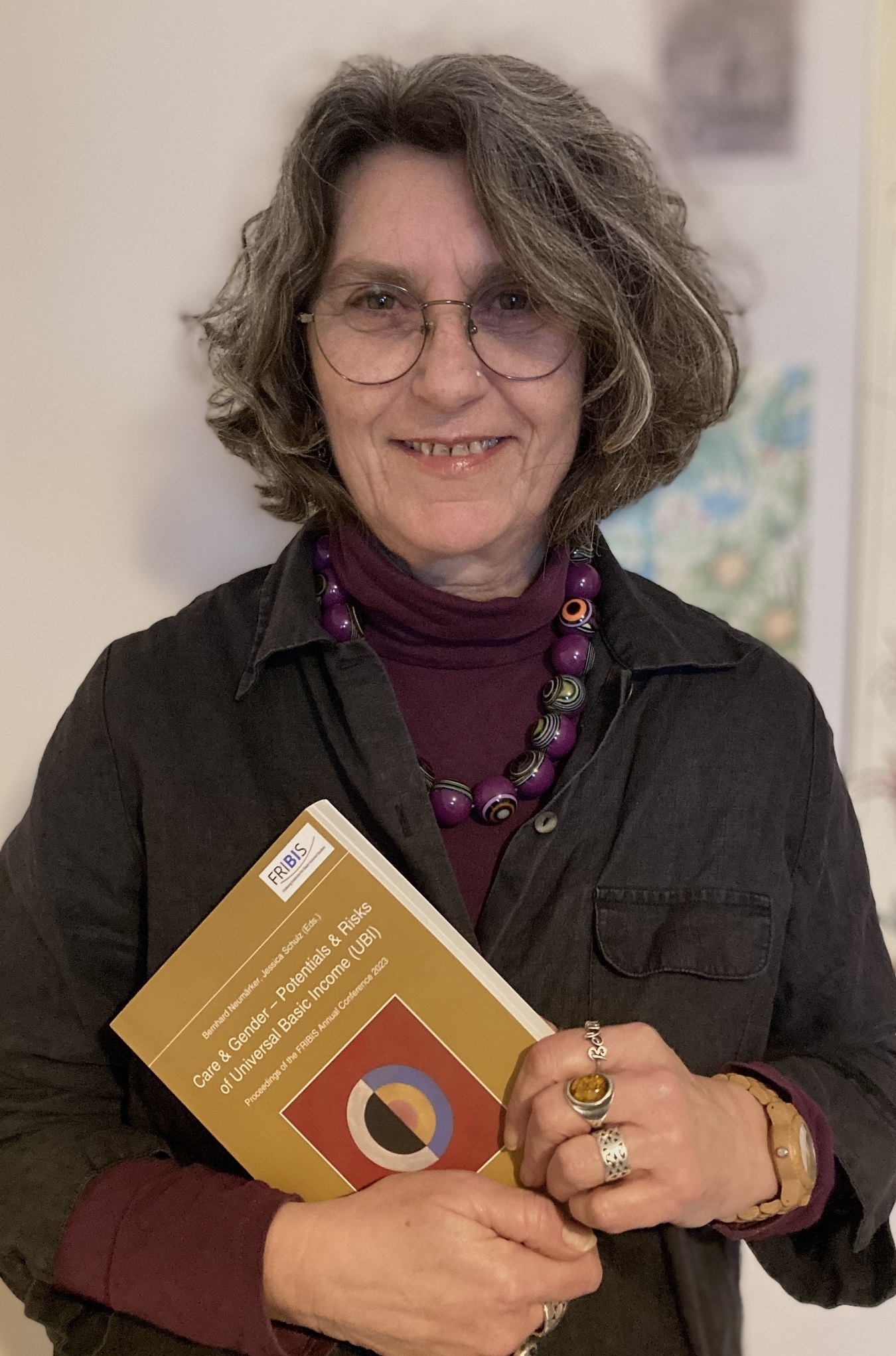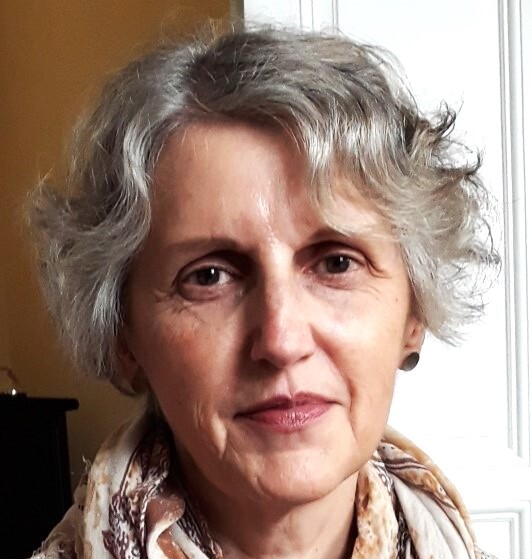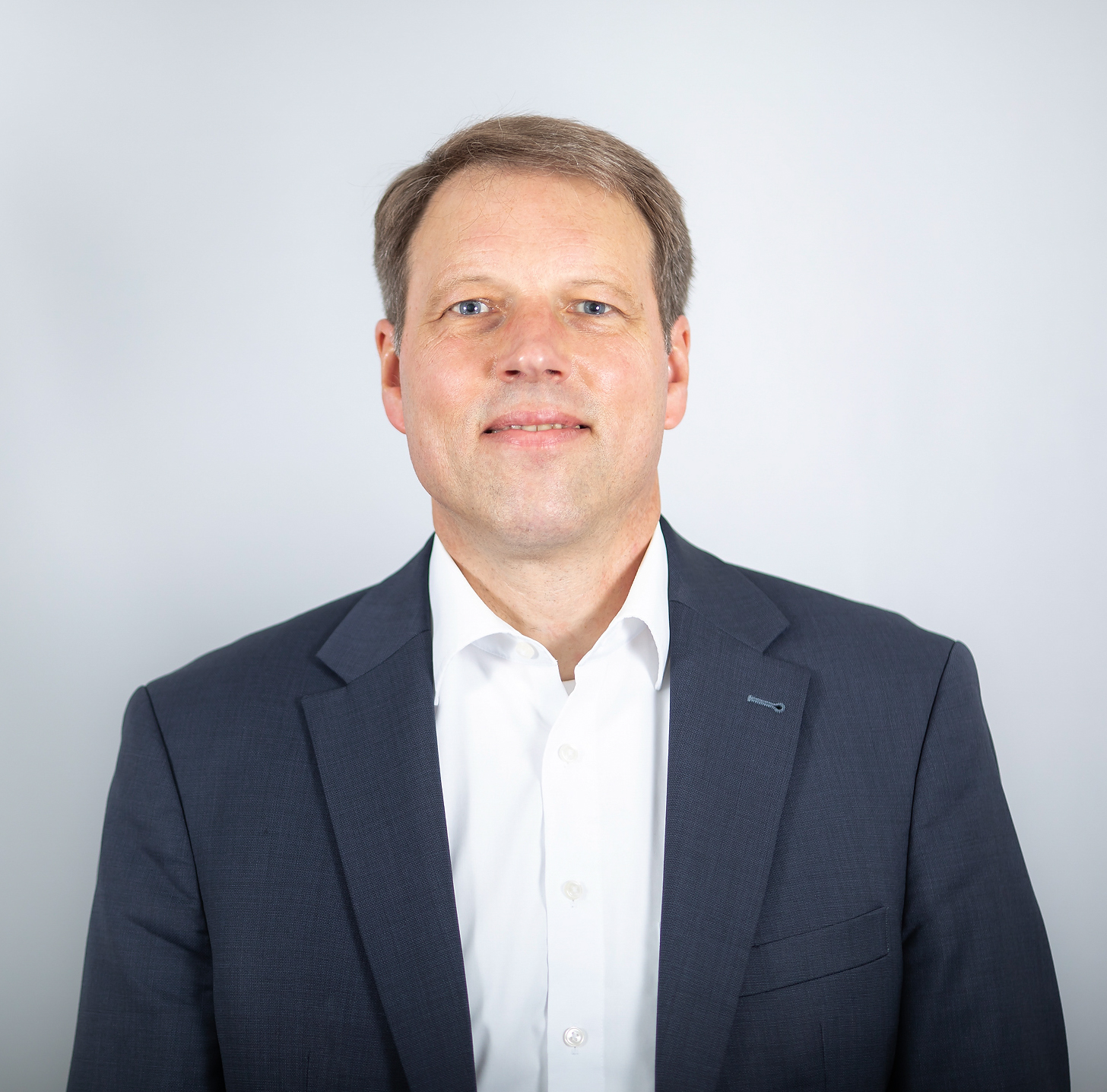Universal Basic Income as a Building Block for Social Transformation. Review of the Lecture Series at the University of Vienna, (Winter Semester 24/25)
In the winter semester 2024/25, the University of Vienna hosted a lecture series titled “Bedingungsloses Grundeinkommen – Baustein für gesellschaftliche Transformation und Politikgestaltung” (Universal Basic Income – Building Block for Social Transformation and Policy Design). Led by Prof. Barbara Prainsack and organized in cooperation with the Netzwerk Grundeinkommen und sozialer Zusammenhalt, BIEN Austria (Network for Basic Income and Social Cohesion, BIEN Austria), the series examined UBI from a number of perspectives, from the foundations of the Austrian welfare state, through care work and artificial intelligence, to practical questions of concrete policy design.
Several members of the FRIBIS “care” team contributed to the lecture series with presentations and commentaries: Margit Appel commented on October 9, 2024 on a comprehensive analysis of the Austrian welfare state, Prof. Dr. Ute Fischer gave a presentation on October 23, 2024 on the topic complex “Arbeit – Care – Grundeinkommen” (Work – Care – UBI), while Dr. Verena Löffler served as commentator; Ronald Blaschke spoke on November 27, 2024 about the differences between emancipatory and so-called neoliberal UBI concepts, and Gudrun Kaufmann presented scenarios for universal basic income from the perspective of narrative economics on January 15, 2025.
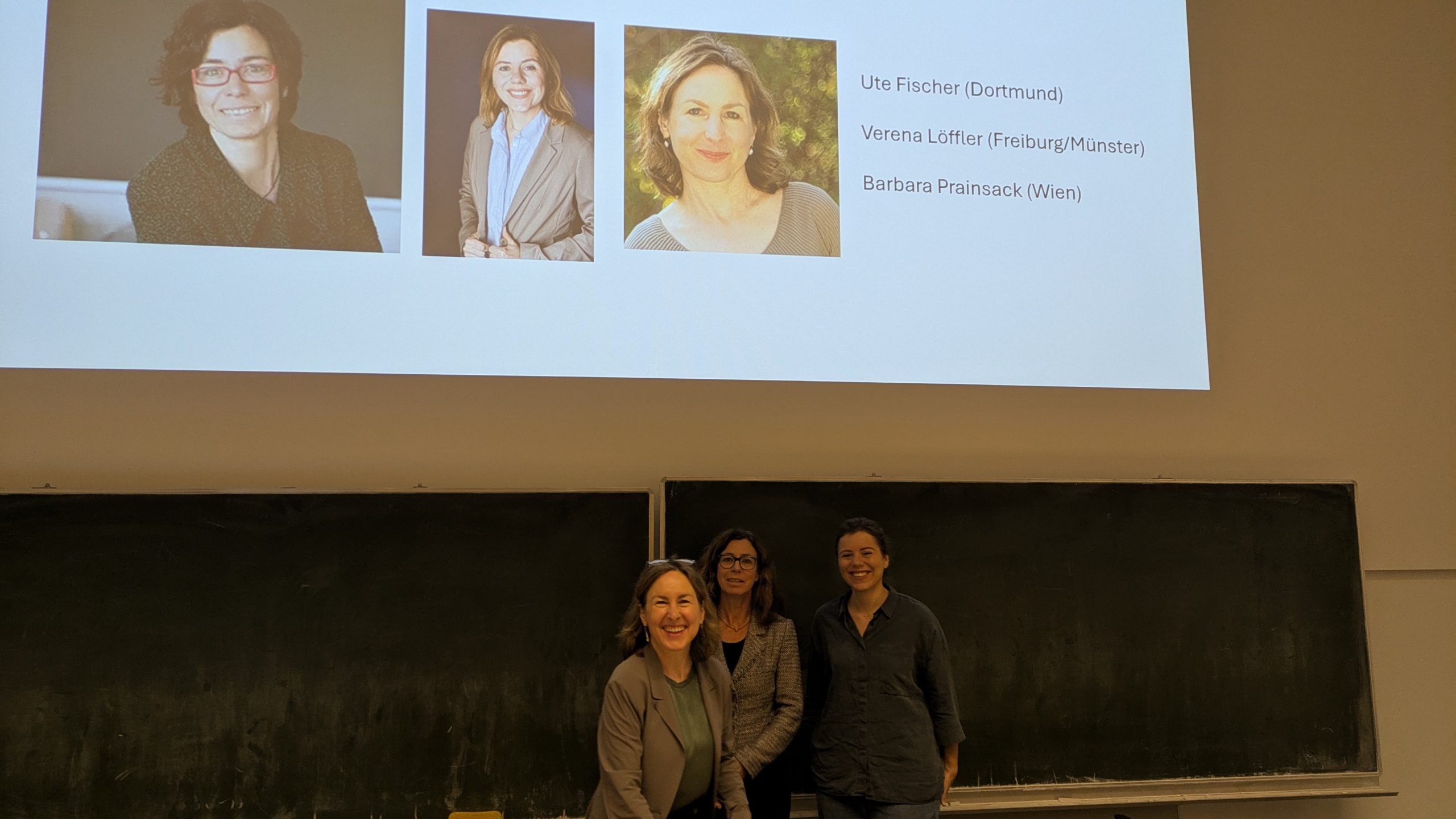
From left to right: Prof. Dr. Barbara Prainsack, Prof. Dr. Ute Fischer, Dr. Verena Löffler
Asked about the need for marginalized groups to be more forcefully included in the UBI discussion, Verena Löffler responded:
The basic income debate must focus more strongly on marginalized groups as the maximin distribution rule, on which many of the justice-theoretical justifications for a basic income are based, calls for prioritizing those who are least advantaged in our society. In concrete terms, this is currently only considered in the basic income debate insofar as people who actively participate in society, and especially in formal employment, are taken into account. There is less discussion about how a basic income could affect people who are currently denied social participation. This is a deficit that needs to be addressed.
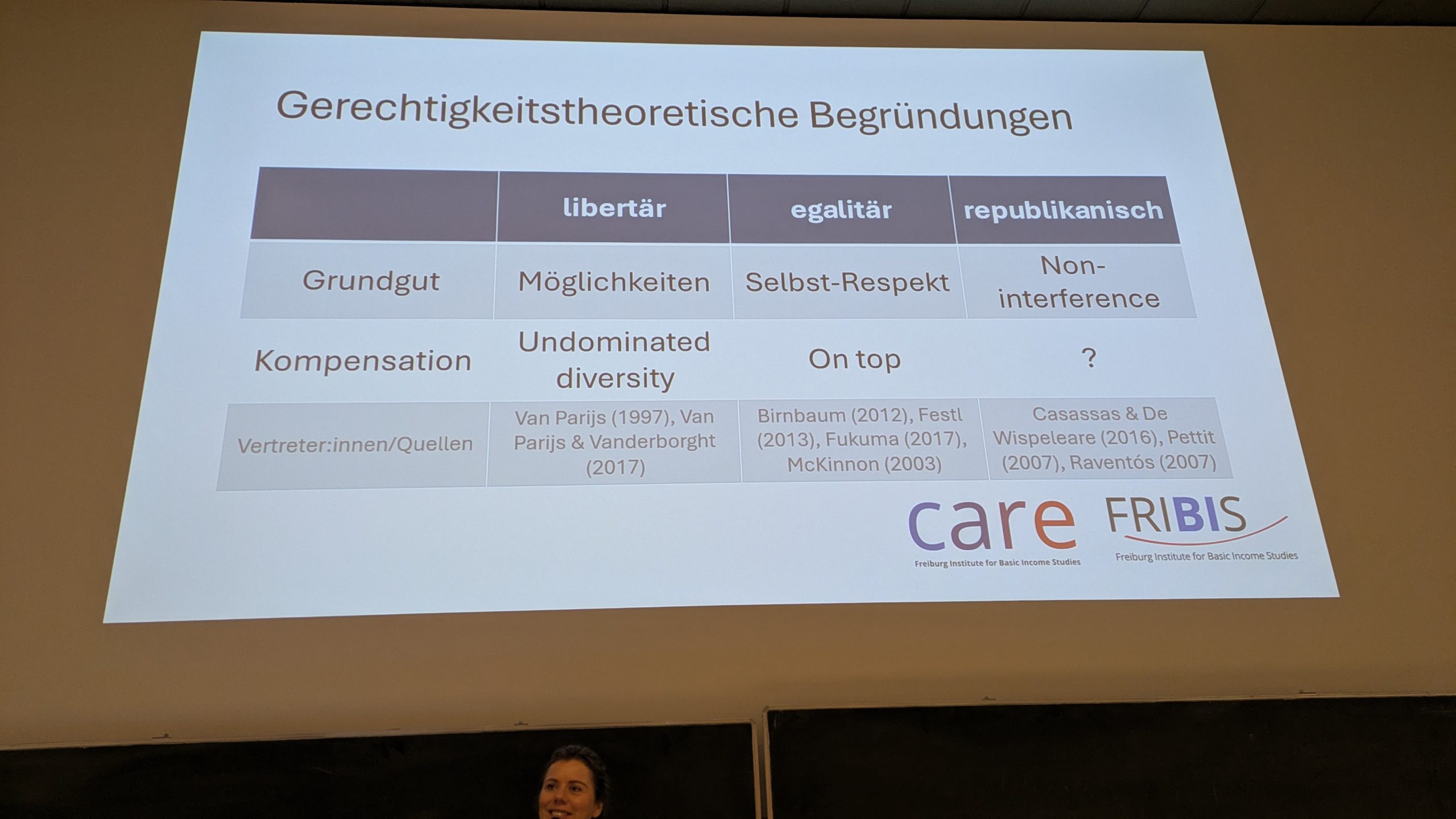
Lecture by Dr. Verena Löffler
When asked about the relationship between work, care, and UBI in modern welfare state thinking, Ute Fischer explained:
Care is fundamental to how society functions. It can be provided in family, professional, and civil society contexts. Given this importance and diversity, a welfare state must create opportunities for care work – for everyone, regardless of gender or age. The current social system discriminates against caregivers through poor pay or no pay at all, and it discriminates against women, who perform the majority of this work. With UBI, everyone would have the security to engage in necessary care work in whatever way possible. Care work could fulfil its potential to create meaning without the fear of losing one’s livelihood.
On the question of fundamental differences between emancipatory UBI concepts and so-called neoliberal basic income models, Ronald Blaschke explains:
There are no neoliberal basic income concepts, only proposals for partial basic income. The key differences between neoliberal proposals for partial basic income and emancipatory basic income approaches lie in their fundamental socio-political objectives, orientation, and corresponding design.
While neoliberal approaches aim to create optimal conditions for market functioning, emancipatory approaches seek to completely overcome, or at least politically and democratically transcend, market dominance. Put simply, emancipatory approaches aim for decommodification and democratization of (re)production, social relations, and social relationships, implicitly also targeting decarbonization and dematerialization of this (re)production for ecological reasons. While emancipatory approaches involve criticism of both market and state, neoliberal approaches only criticize the state to enable better market mechanisms. This has implications for their respective relationships to the welfare state. Neoliberal transfer concepts seek to dismantle the welfare state. Emancipatory approaches aim to transform it into an institution that promotes individual capabilities and solidary cooperation.
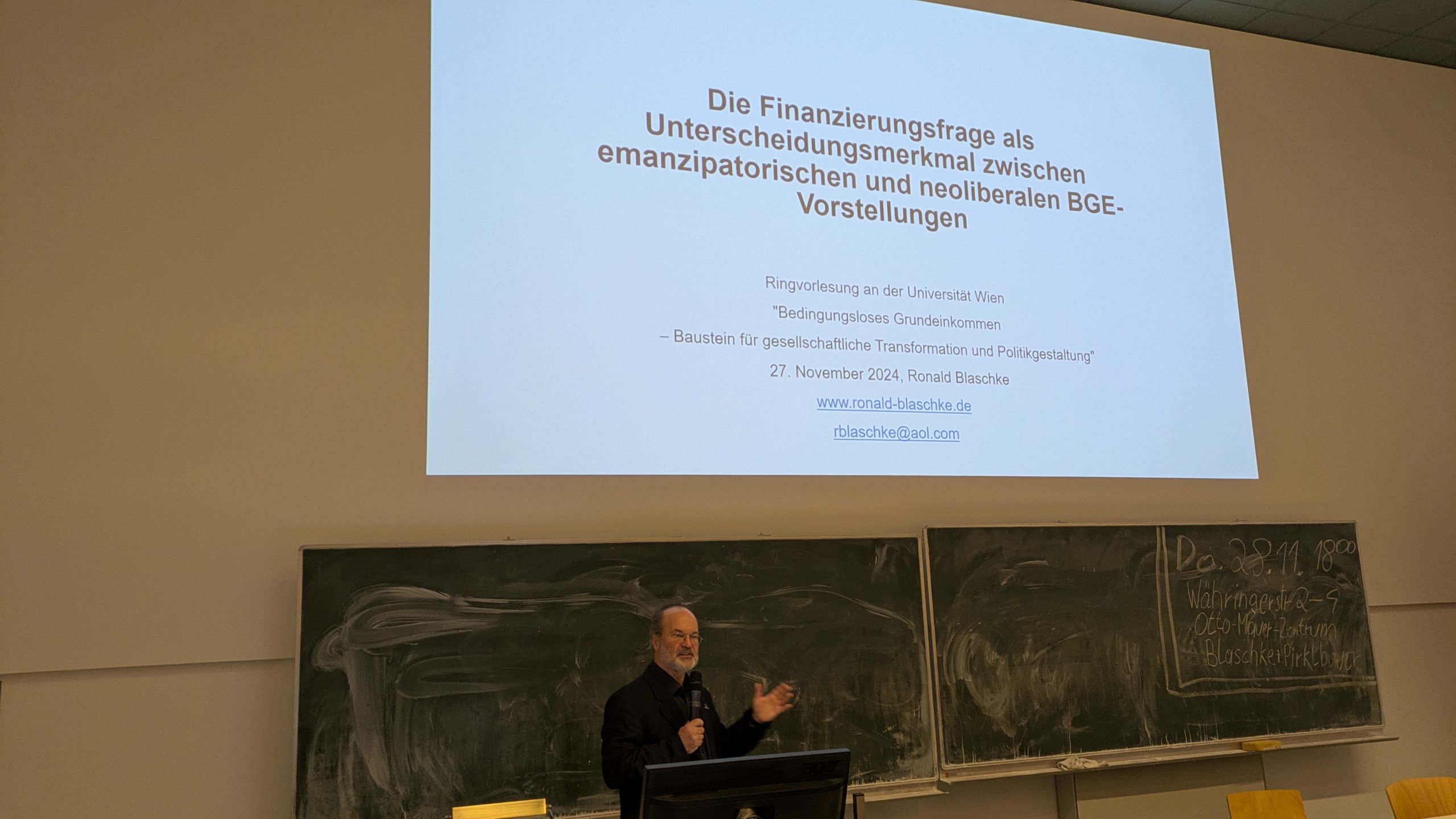
Ronald Blaschke
The lecture series concluded on January 15, 2025, with a presentation by Gudrun Kaufmann on “Szenarien zum Grundeinkommen aus der Perspektive einer narrativen Ökonomik” (Scenarios for Universal Basic Income from the Perspective of Narrative Economics), with commentary by Manfred Füllsack. Her presentation illustrated how the economic significance of narratives, widely discussed since Robert Shiller’s Narrative Economics: How Stories Go Viral & Drive Major Economic Events (2019), is also highly relevant for the basic income debate.
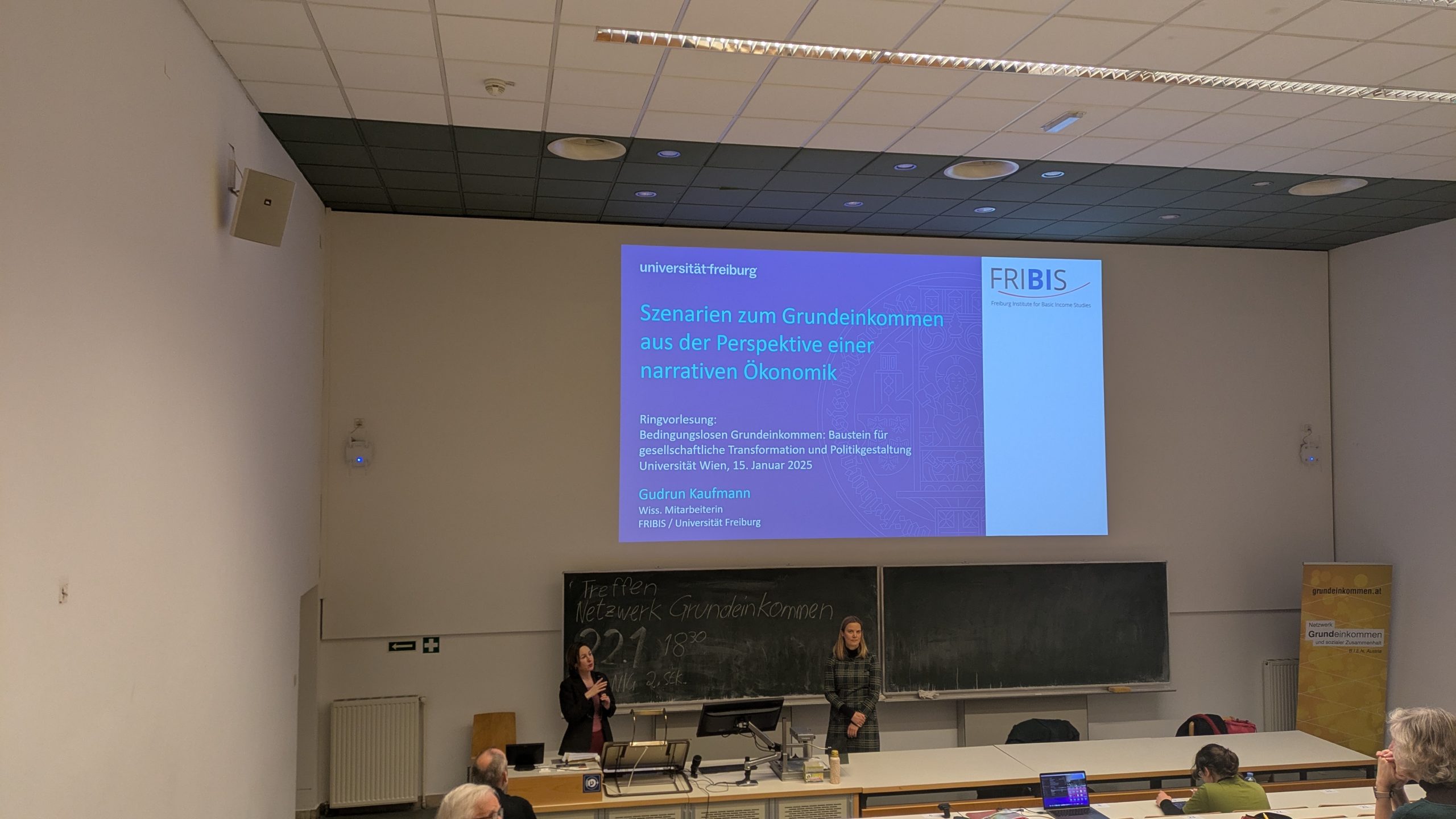
Gudrun Kaufmann (right)
To make the content of the entire lecture series accessible to a broader audience, students will be producing podcast episodes in the coming months. Further information will follow.




